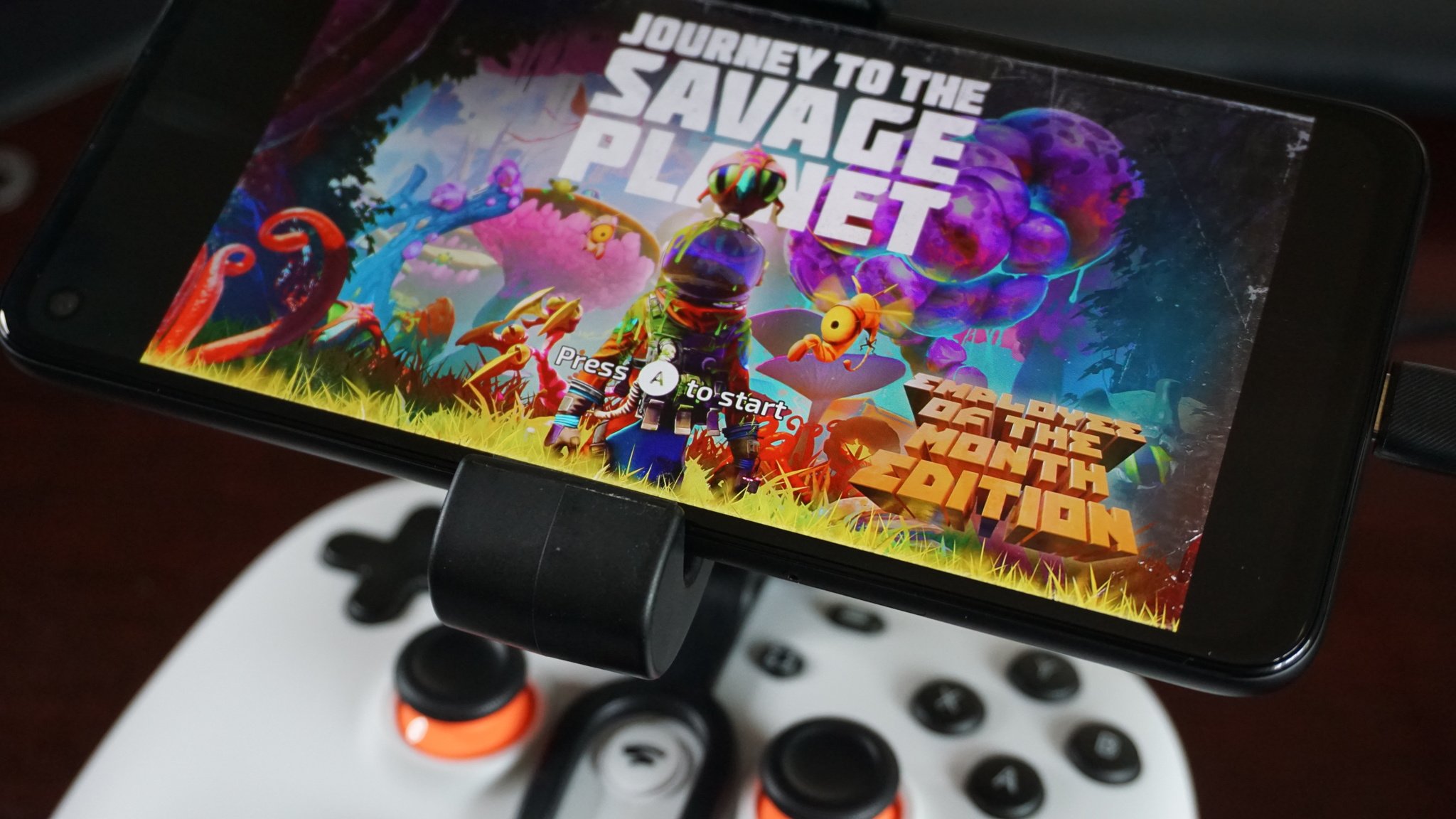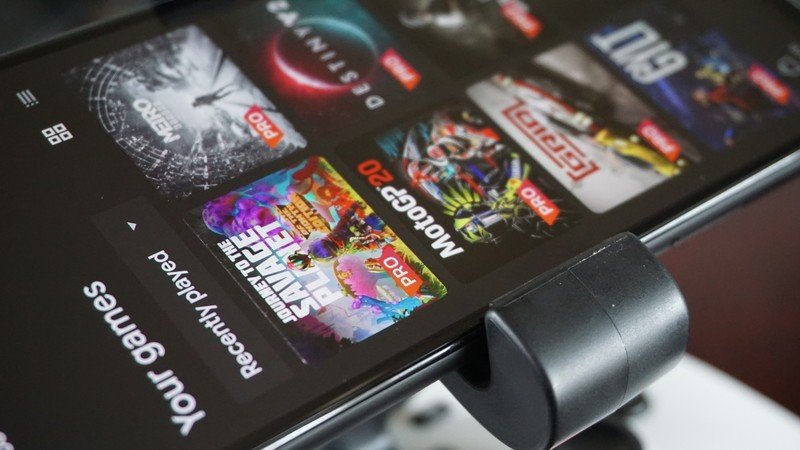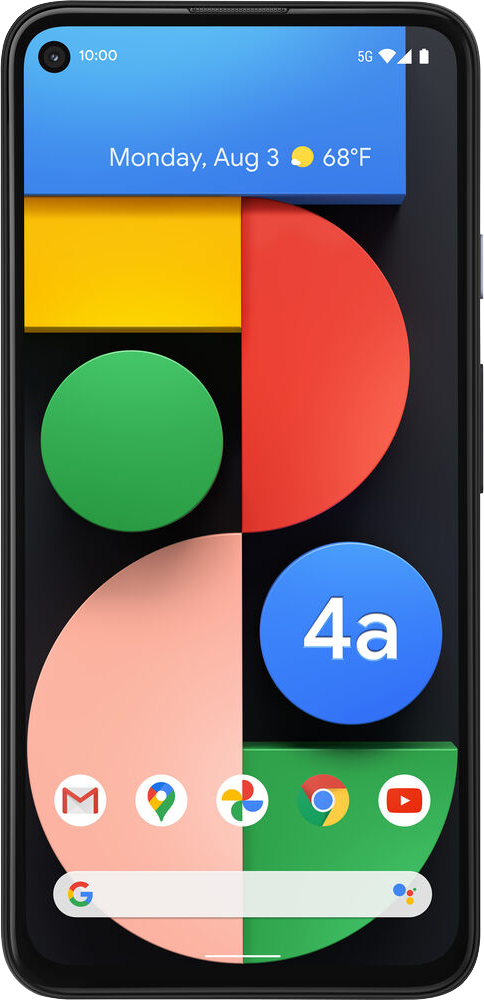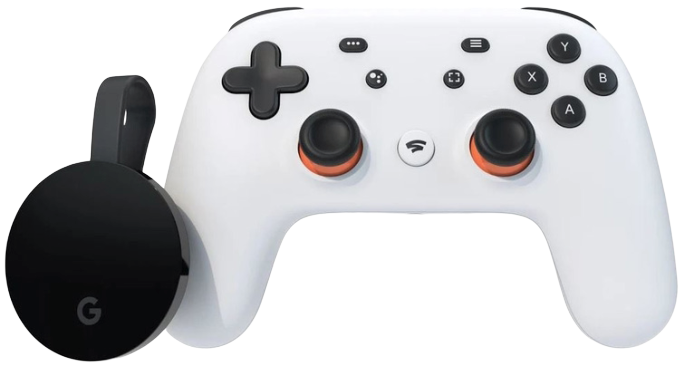Stadia is a mixed bag with AT&T's 5G service on the Pixel 4a 5G

Google Stadia has come a long way since its launch, but it isn't perfect. Being dependent on your internet connection can be a double-edged sword. With AT&T's 5G service, you'd hope that would solve most streaming problems. As someone who has Gigabit Wi-Fi from Verizon, I found AT&T 5G to be worse. My time testing it out using Stadia and a Pixel 4a 5G was rife with frequent input lag, stuttering, and low-resolution visuals. When it works, it works wonderfully. But when it doesn't, games are nearly unplayable.
I had redeemed Metro Exodus on Stadia a while back when it was available for Pro members, so I decided to hop into that first. For what it's worth, the opening of the game was fairly smooth and looked just as stunning as on PC or consoles. Once I got to the Aurora and the world opened up, that's when the performance started to take a hit. There were times when I would move the analog stick to turn around and shoot an enemy, but the input wouldn't register for another 3 or so seconds. And because it would take me a split second to realize that my controls aren't registering correctly, I'd end up moving the analog stick back and forth to overcompensate, only making the problem worse.

The input lag was only compounded by other problems.
Low frame rates and resolution piled on atop the input lag to produce a heap of headache-inducing annoyance. It could be fine for a couple of minutes and then suddenly begin to fluctuate every couple of seconds. I wouldn't necessarily call Metro Exodus a fast-paced game — depending on how you play it, I tend to prefer stealth — but it was still difficult to play for more than an hour on 5G. What made it even more egregious was that to use AT&T 5G with the Stadia controller, I needed to have it directly plugged into the phone via USB-C. There are some other amazing Stadia controllers out there that support Bluetooth, but I don't see how that would help.
Other times, during loading screens, Artyom's voiceover would stutter, slowing down, becoming choppy, and then suddenly speeding up as it attempts to catch up. It sounded like a phone call at the edge of a dead zone.
To test out some "slower" games, I tried Journey to the Savage Planet and Human: Fall Flat. I didn't have as many issues with Journey to the Savage Planet, which made it much easier to play (and enjoy). It wasn't perfect — it dropped frames from time to time — but it was much better than my experience with Metro Exodus. Human: Fall Flat, for some reason, was completely unplayable because of its input lag. I'd stop walking on my controller, and my character would walk right off of the ledge seconds later.

I tested these games inside my apartment, outside, and at a friend's apartment, experiencing similar issues each time. I also tested them out multiple times a day on different days to ensure that it wasn't just a random fluke. Though sometimes a game would play better later in the day, for instance, than it had earlier, it still wasn't optimal. Going from 10 minutes of playable gameplay during a session to maybe one minute isn't ideal for anyone.
I had similar issues playing Destiny 2 as I had with Metro Exodus, though to a lesser extent — which was actually surprising given that Destiny's gameplay is a lot more fast-paced. This tells me that it definitely has the potential to be amazing; it's just up to luck. I wouldn't call Destiny 2 unplayable by any means, so there's hope that someone may have a very different experience with AT&T 5G than I did.
Be an expert in 5 minutes
Get the latest news from Android Central, your trusted companion in the world of Android
That said, I also realize that I may have a skewed perception of what counts as "good streaming quality" because I have Gigabit Wi-Fi. I'm sure some people would say that AT&T 5G is much better than their home internet service. And when it comes to playing games while you're out of the house, it could be the best way to do it.

What makes it so disappointing is that AT&T 5G with Stadia is such a mixed bag. Like I mentioned at the beginning, when it worked, it worked well. But it had problems so frequently that you can't really appreciate when it does works well. It's really a shame because as much as I've criticized Stadia in the past — and it certainly still has its faults — it's a streaming service that makes gaming accessible to more people. That's only a good thing, in my book.
AT&T 5G could be a fantastic service to pair with Stadia, but your mileage will drastically vary. That's the problem with something like this; it's so uncertain. My experience isn't universal. If you already have AT&T 5G and want to stream Stadia with it, give it a shot. But don't go out and get the service specifically for it.

All the bells and whistles
The Pixel 4a 5G may not be one of Google's newest offerings in the Pixel line, but it's still an excellent phone to pick up. It has a fantastic camera, excellent battery life, 128GB of storage, and is perfectly suited for streaming games with Stadia. If you're looking for a new phone but don't want to break the bank on the newest out there, this is one of your best bets.

Convenient streaming in your living room
Stadia Premiere comes with everything you need to start streaming your favorite games. It comes with a Stadia controller, specifically designed for Google's service, and a Chromecast Ultra so that you can play games on your television instead of your computer or phone.

Jennifer Locke has been playing video games nearly her entire life. You can find her posting pictures of her dog and obsessing over PlayStation and Xbox, Star Wars, and other geeky things.
